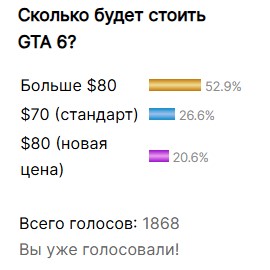
Fortnite designer Epic Games should pay an internet $520 million fine adhering to 2 problems from the United States Federal Trade Commission declaring youngsters’s personal privacy legislation offenses and also prevalent “dark patterns” that have actually allegedly deceived “millions of players into making unintentional purchases.”
The FTC announced (opens up in brand-new tab) the record-setting arrangements today. The larger, $275 million fine is an outcome of Epic damaging the Children’s Online Privacy Protection Act (COPPA), the FTC states, and also stands for “the largest penalty ever obtained for violating an FTC rule.”
The connected complaint (opens up in brand-new tab) makes clear that Epic purposefully “collected personal data from children without first obtaining parents’ verifiable consent.” The FTC additionally zeroes in on the truth that Fortnite allows message and also voice conversation by default, which it declares “harmed children and teens.”
“Children and teens have been bullied, threatened, and harassed within Fortnite, including sexually,” the FTC composes. “Children and teens have also been exposed to dangerous and psychologically traumatizing issues, such as suicide and self-harm, through Fortnite.”
Additionally, “in a first-of-its-kind provision,” Epic will certainly “adopt strong privacy default settings for children and teens, ensuring that voice and text communications are turned off by default.” Epic will consequently be compelled to remove any kind of information gathered in infraction of COPPA unless customers particularly enable the firm to maintain it, either via adult authorization for minor customers or affirmative authorization for customers that recognize as being 13 or older “through a neutral age gate.”
Just as significantly, Epic will certainly need to launch “a comprehensive privacy program that addresses the problems identified in the FTC’s complaint and obtain regular, independent audits,” relatively to make sure that the adjustments triggered by these problems do not diminish.
Epic will certainly additionally pay $245 million in straight reimbursements– similarly, “the FTC’s largest refund amount in a gaming case, and its largest administrative order in history.”
“Epic used privacy-invasive default settings and deceptive interfaces that tricked Fortnite users, including teenagers and children,” FTC Chair Lina M. Khan states. The FTC declares that “Epic has persisted in its unlawful conduct” in spite of problems from “millions” of private customers in addition to responses from its very own workers.
The FTC’s various other complaint (opens up in brand-new tab) increases on the accusations of deceptiveness, calling out Fortnite’s “counterintuitive, inconsistent, and confusing” user interface and also its capacity to “incur unwanted charges based on the press of a single button.”
“Players could be charged while attempting to wake the game from sleep mode, while the game was in a loading screen, or by pressing an adjacent button while attempting simply to preview an item,” the FTC states. “These tactics led to hundreds of millions of dollars in unauthorized charges for consumers.”
If anything, Epic’s previous action to these concerns “only made the problem worse,” the FTC states, since it “purposefully obscured cancel and refund features to make them more difficult to find.”
Developers ought to go into the subject, as this negotiation shows modern American governing technique
Epic CEO Tim Sweeney
Epic’s technique of obstructing customers from accessing accounts captured up accountable conflicts– sometimes come with by cautions that they can be outlawed for challenging future costs, as the FTC places it– will certainly additionally finish with these fines. Naturally, the FTC will certainly additionally forbid Epic from “charging consumers without obtaining their affirmative consent.”
The FTC has actually pursued lots of firms for deceitful techniques in the past, especially in the mobile room– Amazon (opens up in brand-new tab) and also Apple (opens up in brand-new tab) dealt with comparable costs in 2014 alone, as an example– yet these fines are specifically considerable not simply for pressing Epic for half a billion, however, for establishing a modern-day criterion for personal privacy setups and also the electronic securities of youngsters and also teenagers. If the manufacturers of Fortnite can be placed via the question and also compelled to alter just how they run, it do without stating that so can various other game and also application firms.
Indeed, as associate chief law officer Vanita Gupta states, “This proposed order sends a message to all online providers that collecting children’s personal information without parental consent will not be tolerated.”
Epic CEO Tim Sweeney considered in on the discussion on Twitter (opens up in brand-new tab) after the firm uploaded its very own statement (opens up in brand-new tab) regarding “moving beyond long-standing industry practices.”
“Developers should dig into the topic, as this settlement reflects state of the art American regulatory practice, for example now applying principles similar to the UK Age-Appropriate Design Code to voice chat defaults,” Sweeney suggests. “In-app purchasing is also a hot topic, with rigorous expectations of ‘Affirmative Express Consent’ for purchases made both in real money and paid virtual currency.”
“The old status quo for in-game commerce and privacy has changed, and many developer practices should be reconsidered,” Epic composes, obviously really feeling fairly reflective suddenly.
Epic’s declaration additionally information the adjustments it’s made to Fortnite’s plans and also UI, specifically a “hold-to-purchase” technician instead of one-button acquisitions, an “explicit yes or no choice” for conserving settlement info, the repair of “thousands” of accounts outlawed for chargebacks, and also adult controls for conversation filters like “everybody” or “friends only” (voice and also message will certainly still fail to “nobody” for any individual under 18).
The FTC remains in a litigious state of mind, having simplysued Microsoft to block its acquisition of Activision
.
Source: gamesradar.com
.


